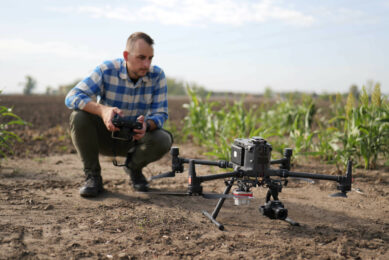Subsidy to develop fully automated drone workforce

Groningen University has been granted a € 600,000 subsidy to develop a fully automated workforce incorporating small drones to help greenhouse growers control photosynthesis and pests better and make more precise yield predictions.
The so-called Smart Industry subsidy from the Dutch organisation for scientific research NWO, was granted to the SMART-AGENTS project led by Dr. Kerstin Bunte. NWO facilitates excellent, curiosity-driven disciplinary, interdisciplinary and multidisciplinary research.
In the Smart Industry program, scientists and companies work together on projects at the intersection of big data, smart industry and the creative industry. The aim is to conduct research into developing symbiotic networks of collaborative agents (drones) as a solution for logistics and agriculture/horticulture.
Text continues underneath image
Challenges in autonomous solutions
According to the team of the SMART-AGENTS project, agricultural, horticultural and logistical (warehouses) environments are facing challenges when it comes to autonomous solutions. The sheer scale of greenhouse production for instance, makes pest control, monitoring photosynthetic efficiency and making accurate yield predictions difficult, costly and hazardous.
They say there is a continuously growing demand for ‘mobile agents’ that can perform various tasks. In particular multi-platform Cyber-Physical-Systems (CPSs), in which various agents contribute to a network that solves multiple goals simultaneously.
Network of small autonomous drones
For this, the researchers want to develop a fully automated system with a collaborative network of small autonomous drones. With their equipment and capabilities, these drones contribute to solving key tasks. The researchers focus on the development of biomimetic micro sensors and the integration of multiple sensors for robust navigation and control in dynamic ‘living’ environments. Also if these are dark and hazy.
Join 17,000+ subscribers
Subscribe to our newsletter to stay updated about all the need-to-know content in the agricultural sector, two times a week.



